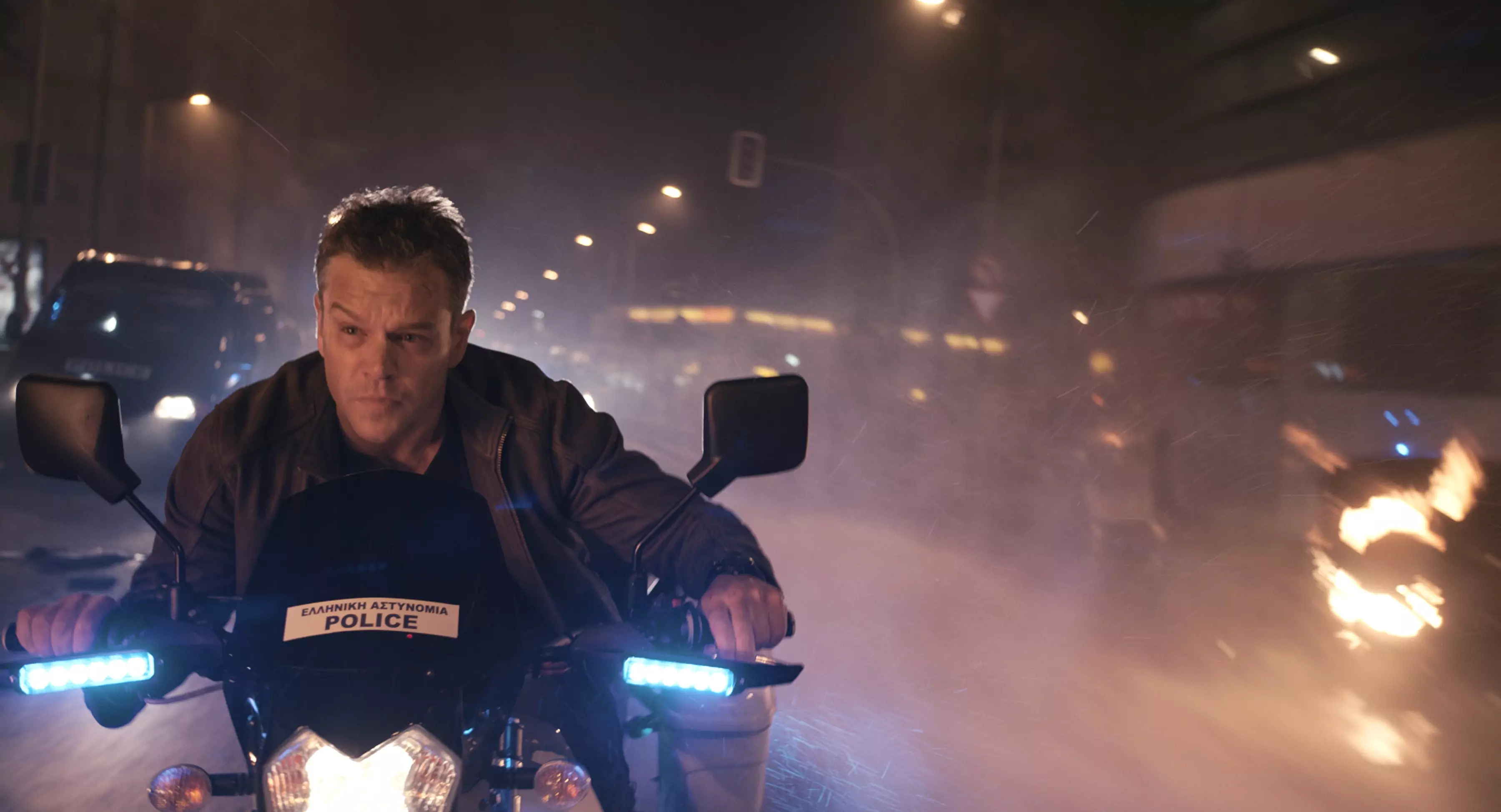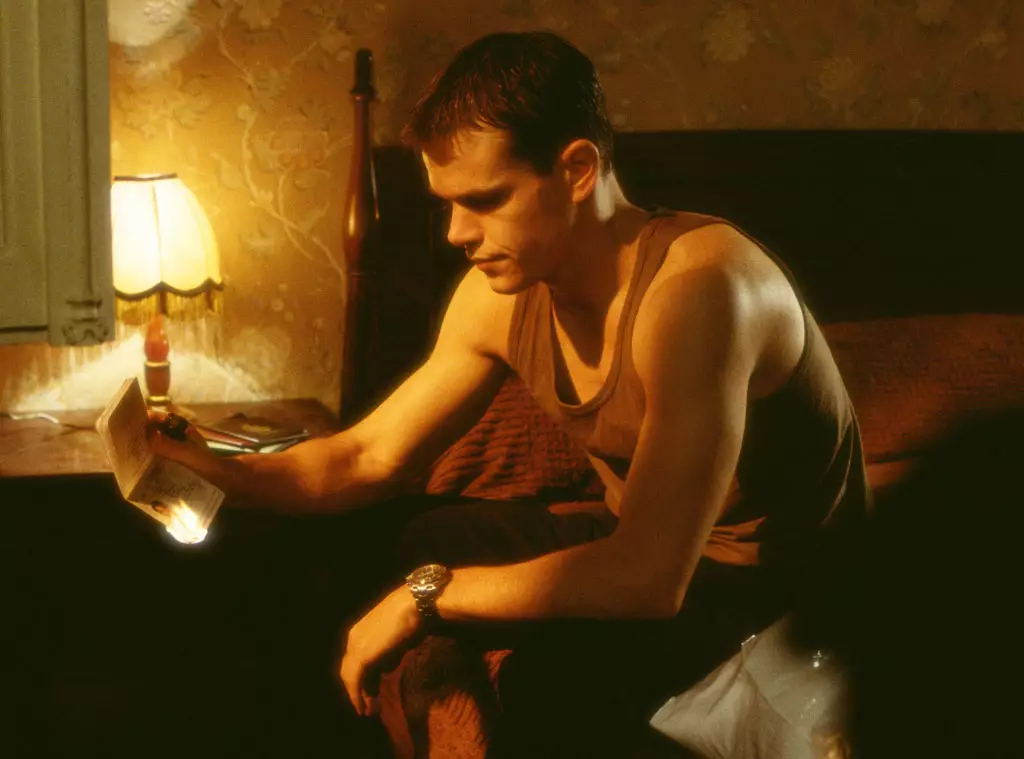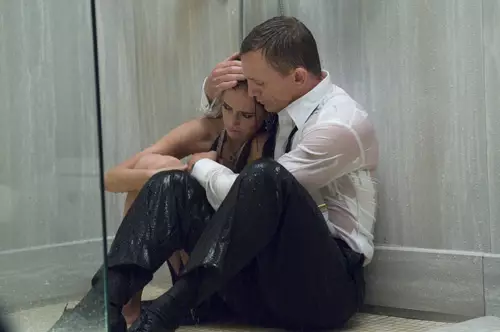
In just over a week, after a nine-year break, Jason Bourne will be back. Properly this time, too. None of that Jeremy Renner running around in smartly cut fight scenes to paper over a piss poor script nonsense.
At the time of writing, I have not seen the film, so it's impossible for me to critique it. I do know, however, that The Bourne Identity vastly changed what an action movie needed in order to carve its own identity (ha!).
When the original trilogy was released between 2002-2007 they were the benchmark for the action/drama genre. They were scaled back of all the nonsense and the fights felt intimate and in your face. This was all largely due to the handheld camera work employed first by Doug Liman and then explored further by Paul Greengrass. For one reason or another, it just worked. It also felt like Matt Damon was born (ha ha!) to play the role of Jason Bourne.
Advert

Credit: Universal
But a decade is a near lifetime in cinema. Can the man who has severe trouble remembering things still feel new and not too familiar in 2016? In all honesty, it's impossible to tell from the trailers. A trailer's entire purpose is to make a movie look great. But it's hard to imagine Greengrass and Damon coming together on this movie if the result was going to be anything less than good at the very least.
It looks like the tightly choreographed fight/chase/car sequences are still there, and why wouldn't they be? That was what made the films what they were and they changed how films of a similar vein were made.
Disagree? Let's look at its main competitor.
Back in 2006, 10 years ago now, Sony and MGM completely re-branded James Bond. The Pierce Brosnan movies had some great moments, including almost the entirety of Goldeneye, but they still suffered from many of the Roger Moore-isms of old. Women used as little more than sexual objects, gadgets that contained not even a milligram of plausibility and evil villains in secret bunkers that we'd all experienced numerous times in the past.
Then Daniel Craig appeared and Casino Royale launched Ian Fleming's character into totally unexplored waters. Gone was the smart talking, instead there was a man in a situation he knew little about. An unmistakable similarity to Jason Bourne's first time out in 2002. We were also gifted a genuine love interest for Bond. In Vesper Lynd we had a female protagonist who drove the story and made the film much more interesting than it would have been if she had been absent. The emotional investment was real and the betrayal ultimately tore Bond apart.
Advert

Credit: MGM
While there are obvious differences between the females of both franchises, both The Bourne Supremacy and the mostly forgettable Quantum of Solace were sequels which explored dealing with the loss of a loved one, albeit in very different ways.
But the real selling point of the Bourne franchise, especially after Greengrass took over, is that the films stress realism and authenticity instead of slick cinematography. Couple this with the shots that put you close to the action, giving an almost 'handheld' documentary feel, and the result is frantic and rhythmic.
Perhaps the best way to illustrate this is an extremely lazy but effective comparison. Take into consideration the Marrakesh chase and fight scene from The Bourne Ultimatum (often cited as the series highlight) and the free-running scene from the beginning of Casino Royale.
It's all extremely similar, low-tracking shots with an intensity that helps place the viewer in the scene itself. It's an age old cliché that film makers 'want you to feel part of the action' but it's very rarely actually achieved.
Sadly, Bond couldn't kick the habit and with the arrival of Spectre the shagging and gin enthusiast reverted back to exactly that and all the things that made Casino Royale what it was had all but disappeared. While the 007 diehards were quite happy, many others were not - seemingly including Daniel Craig himself.
Now here we are. We are most likely without a James Bond and, if Bourne plays his cards right, he can regain the espionage crown.
But does cinema still have a penchant for a man whose story has already been told three times before?
We will know soon enough.
Advert
Jason
Bourne is in UK cinemas 27 July.
Words by Matthew Cooper
Lead Image and Video Credit: Universal
Featured Image Credit:Topics: James Bond